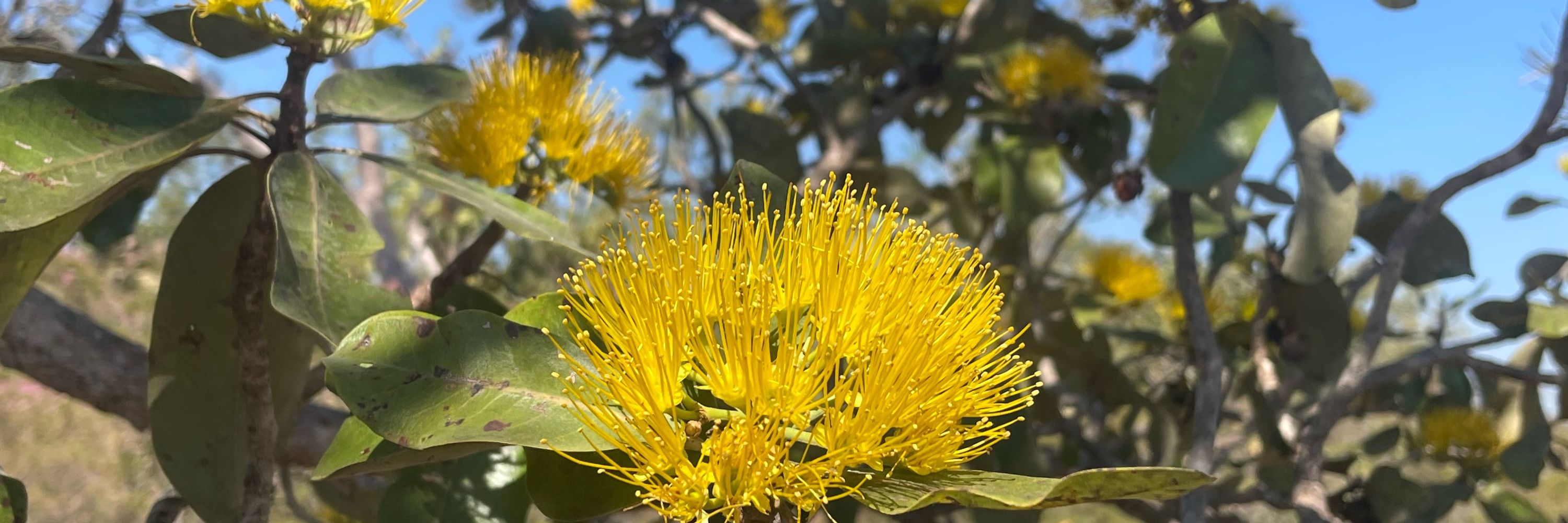
I am a plant ecologist interested in long-term dynamics, patterns of diversity, conservation management, botany, landscape change, native grasslands, neat experiments
Reposted by John W. Morgan, Zoe A. Xirocostas

Read more 🔗 buff.ly/b4pbbgv
Reposted by John W. Morgan

Paper here 🔗 buff.ly/Hi3BxLE
Reposted by John W. Morgan, Julian Schrader

Reposted by John W. Morgan

Reposted by John W. Morgan, Elena Litchman

"Biodiversity and Ecosystem Stability Across Spatial and Temporal Scales"
Join us online, Thursday August 28 1pm AEST. These seminars are open to all!
Sign up to our mailing list to receive the zoom link: forms.gle/uRJwbK1ZacZH...
Reposted by John W. Morgan, Thilina D. Surasinghe

This framework can help researchers & practitioners to
👉select fire metrics for research & management 📊
👉interpret previous studies 💭
👉form a growing body of knowledge 🌏
🔗 doi.org/10.1111/1365...
Reposted by John W. Morgan

Check out our viewpoint, out now in @newphyt.bsky.social - genetic monitoring, extinctions, adaptation, GEAs, and more! ⬇️
doi.org/10.1111/nph....
Reposted by Belinda E. Medlyn, John W. Morgan, James Camac

Reposted by Matthias C. Rillig, John W. Morgan
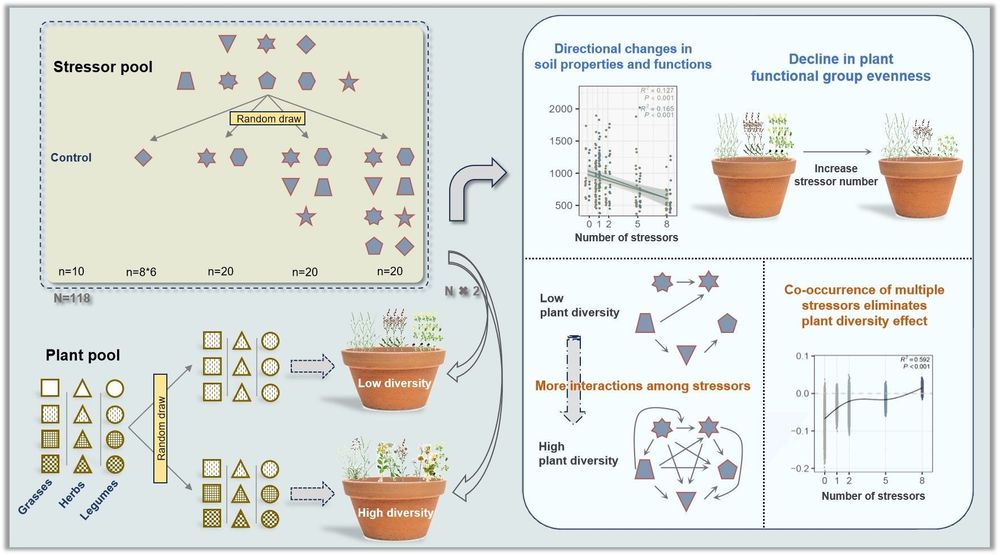
A study by Yanjie Zhu, et al. represents a first attempt to address the effect of plant diversity under multiple stressors.
📖 nph.onlinelibrary.wiley.com/doi/10.1111/...
@mrillig.bsky.social #LatestIssue
Reposted by John W. Morgan
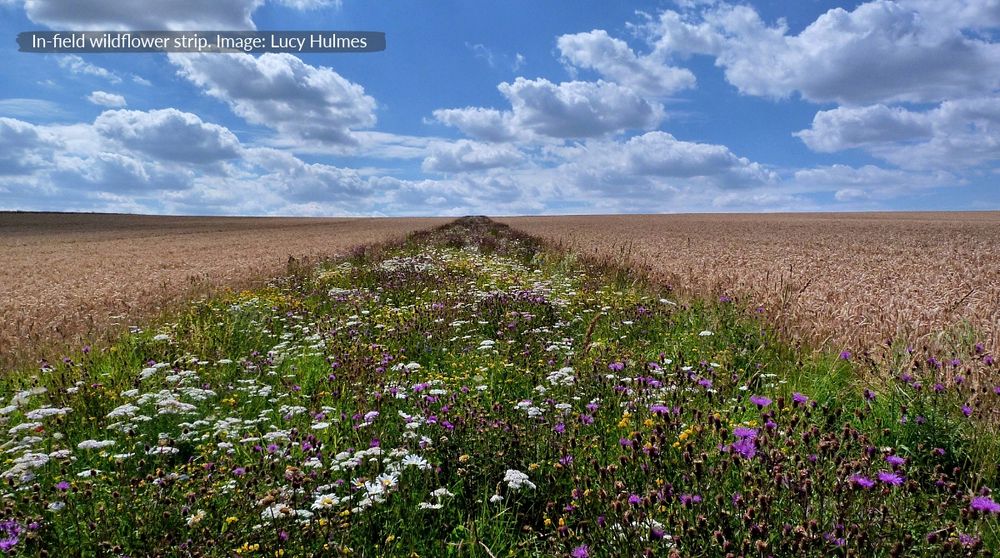
www.ceh.ac.uk/press/nature...
🧵🧪 1/
Reposted by John W. Morgan

🔗Read more: buff.ly/CUN2V5V
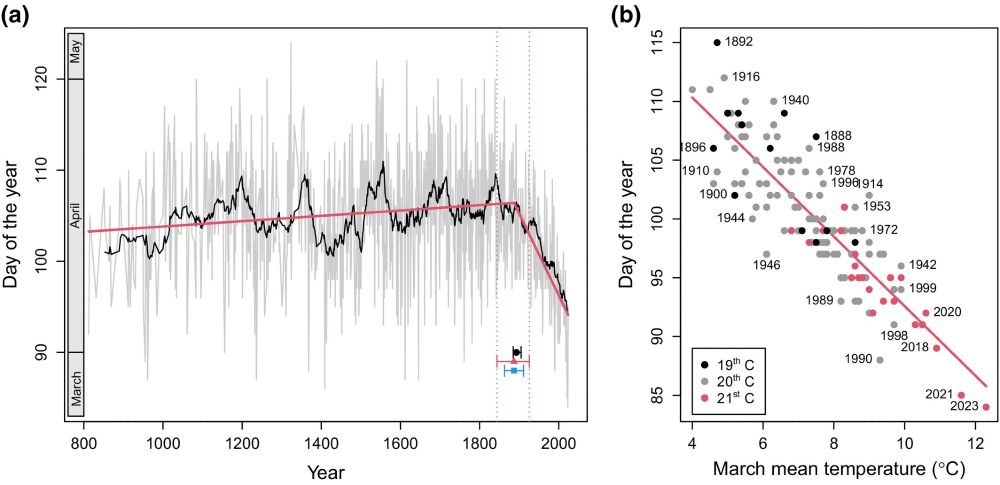
Fascinating new @newphyt.bsky.social paper by @jgpausas.bsky.social
onlinelibrary.wiley.com/doi/abs/10.1...
Reposted by John W. Morgan

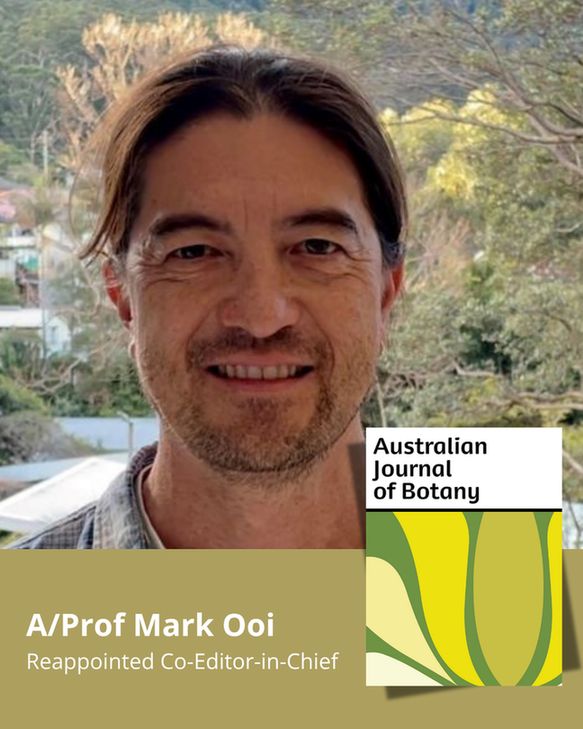
Their continued leadership ensures the journal remains at the forefront of botanical research in Australia and beyond 🌱 📖
Reposted by John W. Morgan, Anne D. Bjorkman, Alba Anadon‐Rosell
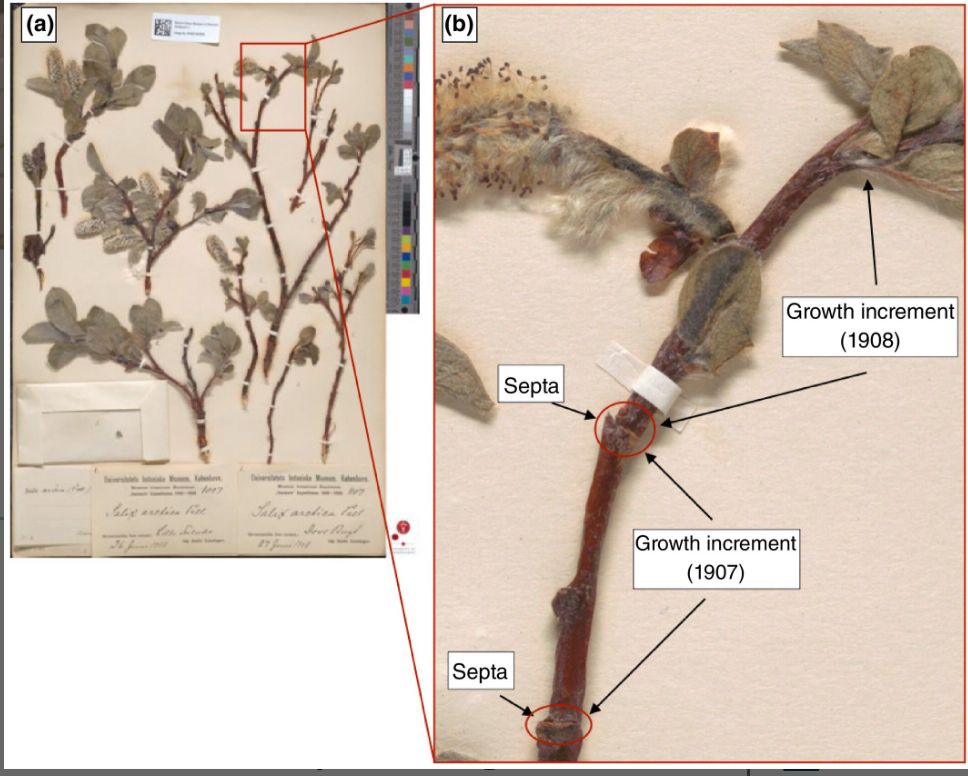
Shrub specimens can be used to recreate annual growth chronologies and help understand plant responses to global change.
With @annebeejay.bsky.social, ZA Panchen, JDM Speed
nph.onlinelibrary.wiley.com/doi/10.1111/...
Reposted by John W. Morgan

Reposted by John W. Morgan

Long term studies and monitoring of #threatenedspecies is a must to support decision making on adaptive #fire management strategies
Something to remember this #WorldEnvironmentDay
Read more here buff.ly/PfrEzQX
@PacificConsBio.bsky.social
Reposted by John W. Morgan
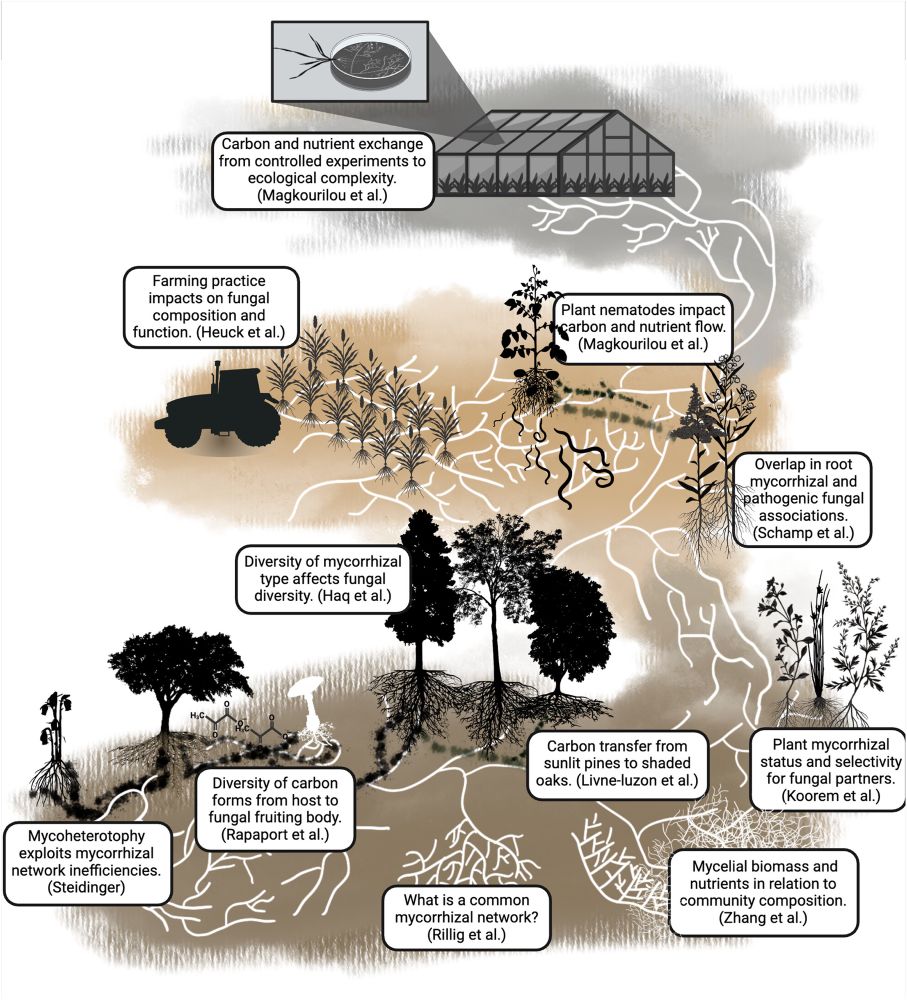
Packed with spore-tacular science.
A collection that highlights advances, identifies unresolved questions & the future research directions.
besjournals.onlinelibrary.wiley.com/doi/10.1111/...
Reposted by John W. Morgan

Reposted by John W. Morgan
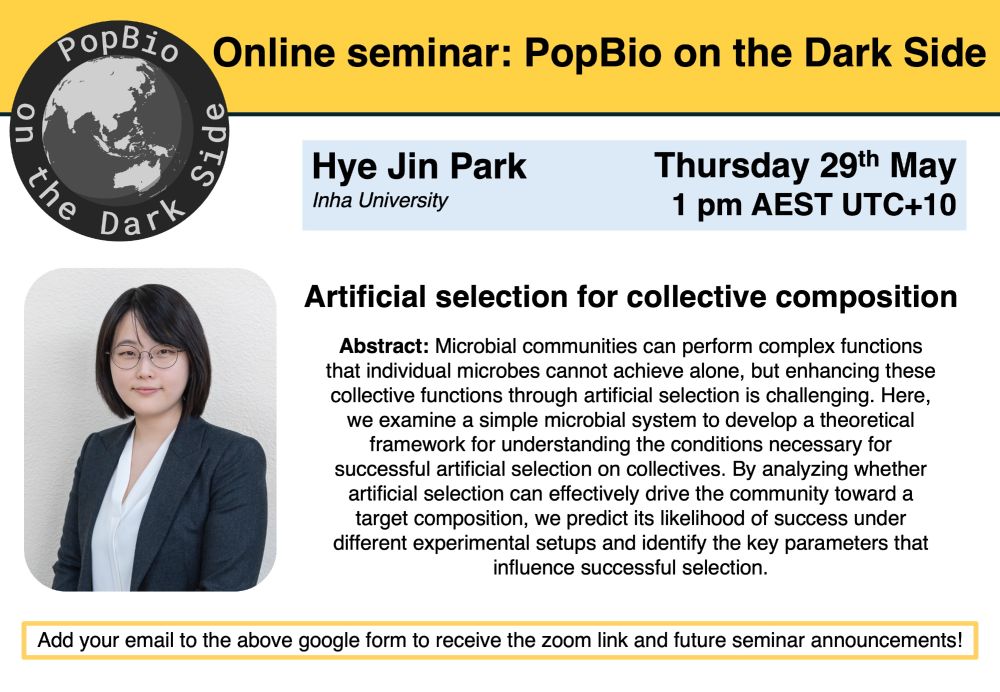
Hye Jin Park @hyejinpark.bsky.social (Inha University) will present:
"Artificial selection for collective composition"
Sign up to receive the zoom link forms.gle/53hkcdcKPGfa...
NB. This seminar won't be recorded.
Reposted by John W. Morgan

Reposted by John W. Morgan

buff.ly/Z3JVVBi
🧪🌍
Reposted by John W. Morgan
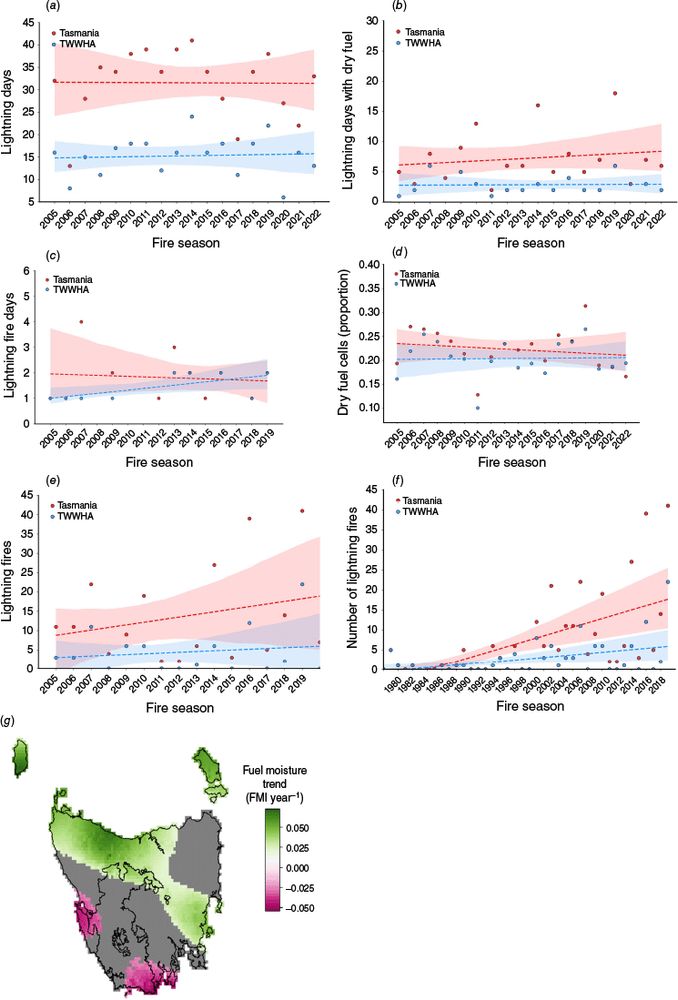
How does lightning impact wildfire dynamics in Tasmania? This study identifies key drivers of lightning-ignited wildfires, Explore how treeless landscapes and dry fuels amplify fire risk in the Tasmanian World Heritage Area.
📖 doi.org/10.1071/WF24...
#IJWildlandFire
Reposted by Colin A. Simpfendorfer, John W. Morgan

Follow @pacificconsbio.bsky.social for research into the region's conservation issues, and the priorities and mechanisms for conservation oriented biological research.
#PacificConsBio @scboceania.org
Reposted by John W. Morgan

🔍 Article: buff.ly/DsVgOiH
🗞️ Blog: buff.ly/nK6qVOX
Reposted by John W. Morgan

• High fire severity caused precipitous declines of two threatened species.
• Protecting or creating refuges is critical to counter increasingly frequent fires.
www.sciencedirect.com/science/arti...
Reposted by John W. Morgan

Reposted by John W. Morgan
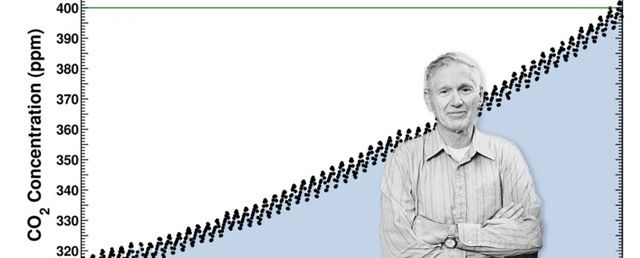
Reposted by John W. Morgan

You can read my journey here: mattkmiecik.substack.com/p/my-start-w...
#rstats #DataScience #OpenScience
Reposted by John W. Morgan

www.theguardian.com/environment/...
Reposted by John W. Morgan


